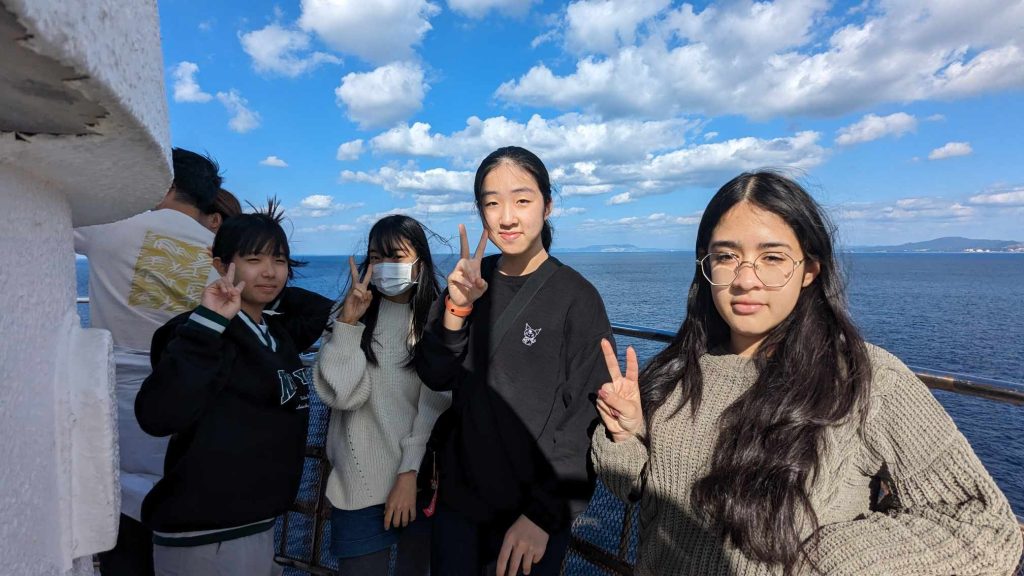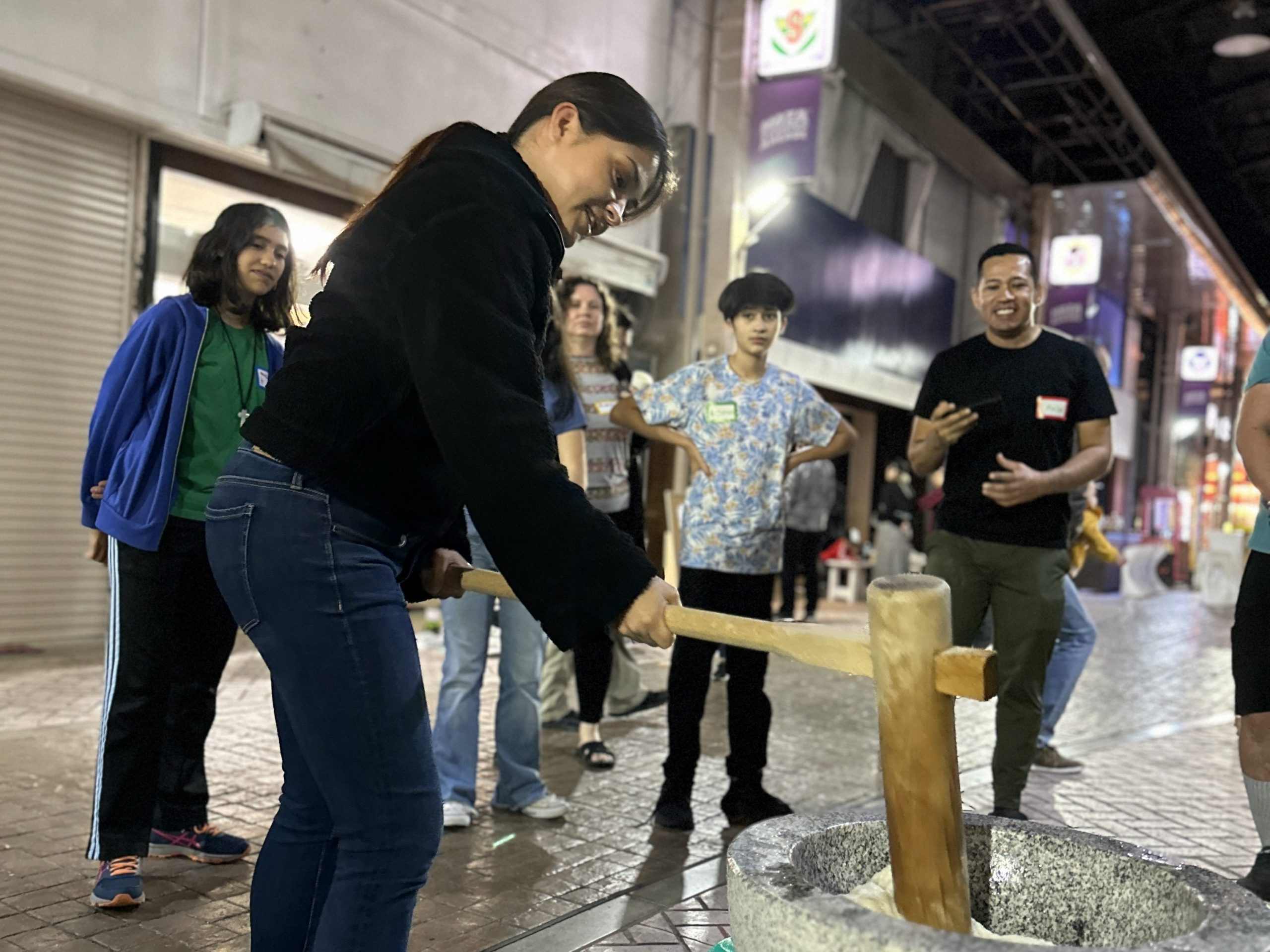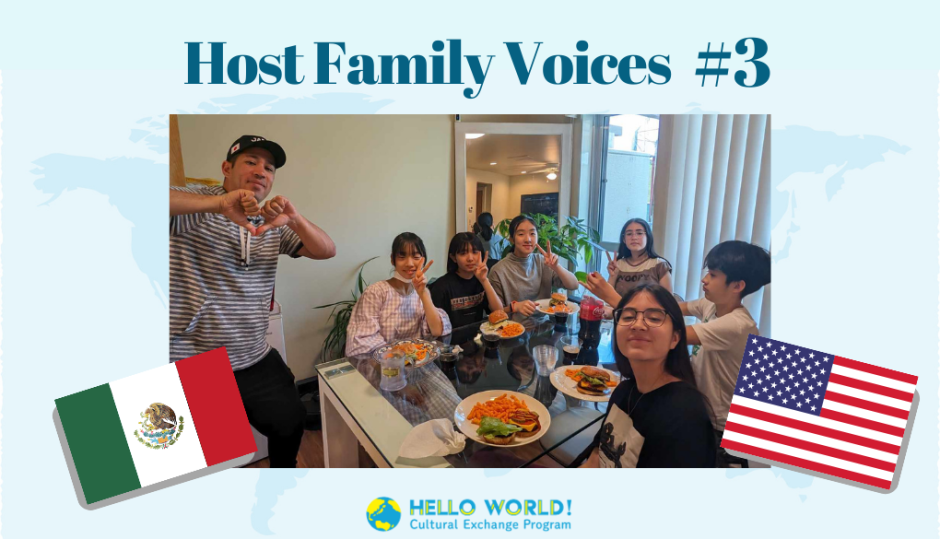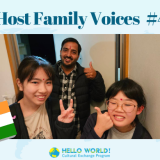Hello everyone! This is the HelloWorld Host Team. We believe that thanks to the multicultural diversity present within local communities we can foster meaningful cultural exchanges for everyone. Today, we want to share with you a special interview with one of our special HelloWorld’s hosts, Sylvia.
Sylvia has been hosting for HelloWorld since August 2023, 4 months after her arrival in Okinawa. As for her motivation to host, she says that she loves to host, and that has been part of her life prior to her arrival to Okinawa. But the hosting in Okinawa has a different layer! Let’s find out more about it through her words!
“I never loved hosting this much until I started hosting here in Okinawa.”
—What has been your motivation to host here in Okinawa?
I like to learn about cultures, that is my thing. And differently from the States, here in Japan I host local Japanese kids. In the States, I used to host foreign students, from countries such as Slovakia or Spain. But here, by hosting Japanese kids, and I can learn about their culture, and that is amazing.
—Can you tell me a little more about how hosting Japanese kids has been? The experience in the US must be much different from Japan!
It is so different. Japanese kids are extremely respectful, and we learn a lot from them. It’s a habit in my family to have nicknames for everyone, like my husband, I call him “piggy”. Whenever we have kids over for the exchange program, I also watch them and create a nickname for them, like the “shy one”, and that makes them laugh so much!
—That is a great way to break the ice and make the kids comfortable.
Yes, it’s a great ice breaker. The kids laugh a lot, and in a HelloWorld letter that we received from one of the guests, the girl even made a joke playing with Japanese and English giving the nickname to my husband of “ Harry buta”, mixing “Harry Potter” and pig (buta) in Japanese, since I call him “piggy” myself!

Sylvia tells us the guests often teach her Japanese expressions such as “mottainai”, a Japanese word that conveys a sense of regret towards waste.
—I’m sure you also have had some culture shocks and impactful episodes through the hosting experience.
It has been interesting to find cultural differences such as the eating habits. The Japanese girls I hosted taught me the word “mottainai”, because they were shocked that we don’t eat the first slice of bread. In Japan they do. It’s normal in Mexico to throw it away, and in the States too, but the girls were absolutely shocked about that. So it has also been a learning experience for us, and it’s awesome.
—That is really interesting, because some countries have a habit to throw away the first and last slice of bread. But the “mottainai” culture is really strong here in Japan. As having kids of your own, I’m sure that has been also a challenge, having kids from two different cultures sharing the same space for some time.
It is really interesting to watch the kids. They were very shy in the beginning, especially because of the language barrier. But with time, they have become less shy and it definitely has helped them. For example, even with the language barrier, everyone speaks videogames!
—Exactly, especially kids. It’s really interesting to see how children communicate with each other regardless of speaking the language.
Yes. So they interact a lot, with games and trying to communicate with each other. My son has been learning Japanese, so it’s really interesting to watch him interact with the guests, both learning different languages, and trying to interact with each other. I keep looking at him, and he will say “gomennasai!” for example, and I get so surprised that he’s been more comfortable communicating in Japanese.
Sylvia has also participated in our Mochitsuki party, one of the events for our host community, and it was her first time participating in a mochitsuki event. We asked her a little bit about that as well, and she told us between laughs:
I was so shy at first, because in the States we have mochi, but it’s a different thing, and usually there’s ice cream inside. But I had never tried traditional Japanese mochi, and in the event, I was so shocked to see the process behind it. I was scared to do it, because I didn’t feel like I had the power to do that process, but the HelloWorld staff was so kind, and were very encouraging, so I ended up doing it near the end. It was very fun.

—How was the mochi? With no ice cream inside!
It was awesome! It is amazing, and now after the event, I keep going to the store to buy mochi with the bean paste inside. I like the ones with ice cream, they’re fine, but the traditional one is amazing. I love mochi now.
Through the HelloWorld Cultural Exchange Program, our amazing Host Families share their culture and their daily life with Japanese students by welcoming them into their homes. However, it is also an opportunity for Host Families to learn about Japanese culture as well! If you want to read more about it, we suggest taking a look at our previous article “Learning From Each Other: A Touching Experience from Our Program”.
As Sylvia and her family have been experiencing, by becoming a host you can experience cultural exchange from your own home, and engage more with your local community. Her biggest motivation to become a host was to learn, and she told HelloWorld that this experience has opened her eyes and herself to new experiences that she wouldn’t have had elsewhere, such as the Mochitsuki event.
HelloWorld provides educational experiences to connect international families living in Japan with locals who want to learn about diverse cultures. Through our Cultural Exchange Program, Japanese students who are unable to go abroad get to spend 24-48 hours at the homes of international families, and get to experience the world in their own city.
So far, over 200+ host families have joined our program and 8000+ students have taken part in our cultural exchange.
Find more details on how to join us here!




